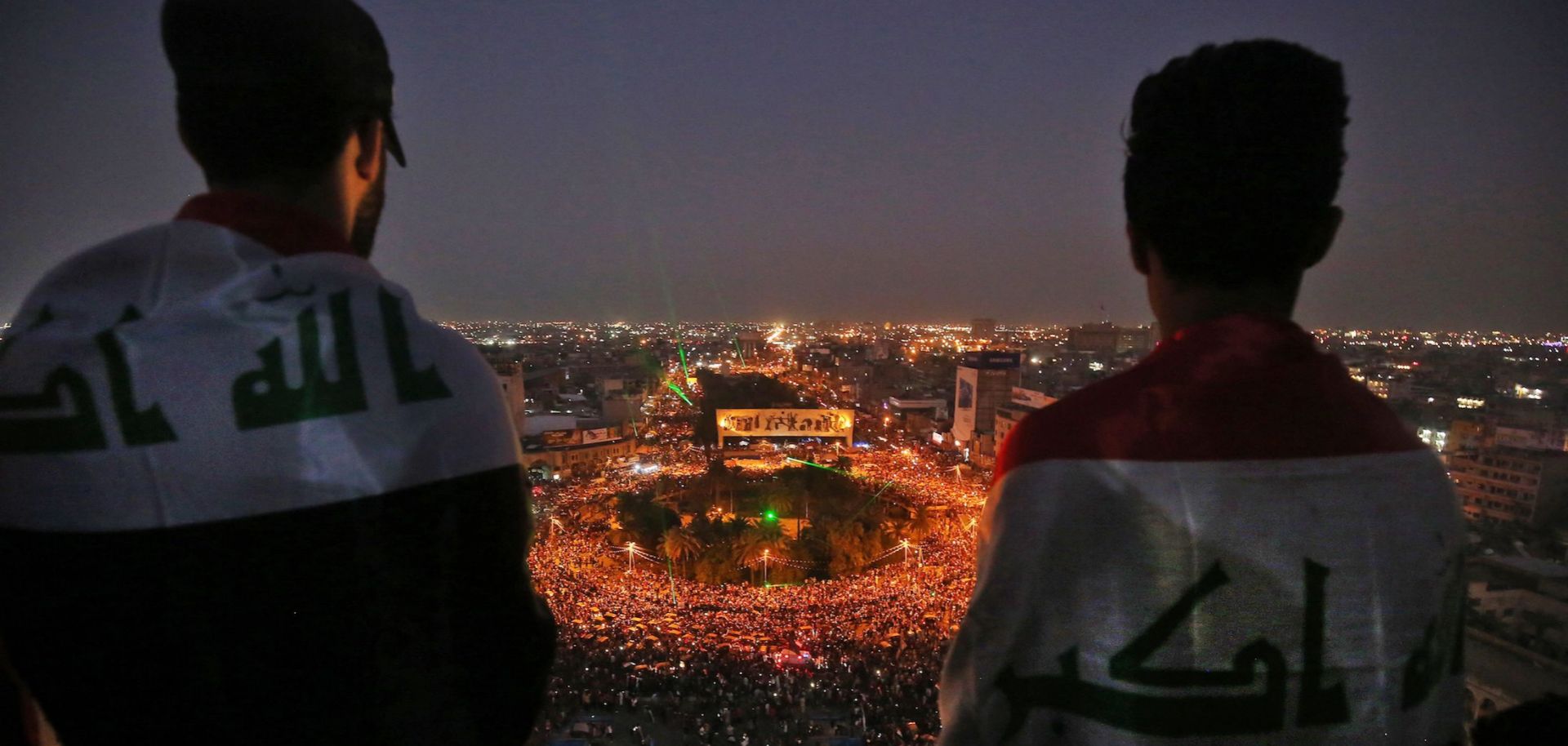ASSESSMENTS
Iraqi and Lebanese Protesters Will Struggle to Change Systems Built to Resist
Nov 27, 2019 | 10:30 GMT

Iraqi protesters gather in Tahrir Square in Baghdad on Oct. 31, 2019. The ongoing protest movement in Iraq could force some concessions, but a wholesale change of government remains unlikely, at least in the short term.
(AHMAD AL-RUBAYE/AFP via Getty Images)
Highlights
- The Iraqi and Lebanese political systems were designed to solve or preclude conflict, not produce efficient governments. The malaise felt by anti-government protesters today stems from those structures.
- The difficulty of reforming these systems is compounded by their vulnerability to manipulation by external powers as well as the emergence of nonstate actors who can take advantage of the relative power vacuum.
- The pressure created through popular demonstrations will likely result in electoral reform, the addition of technocratic leaders and a demand for strongman rule in both places, but any change will take place slowly.
Subscribe Now
SubscribeAlready have an account?
